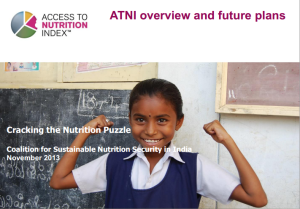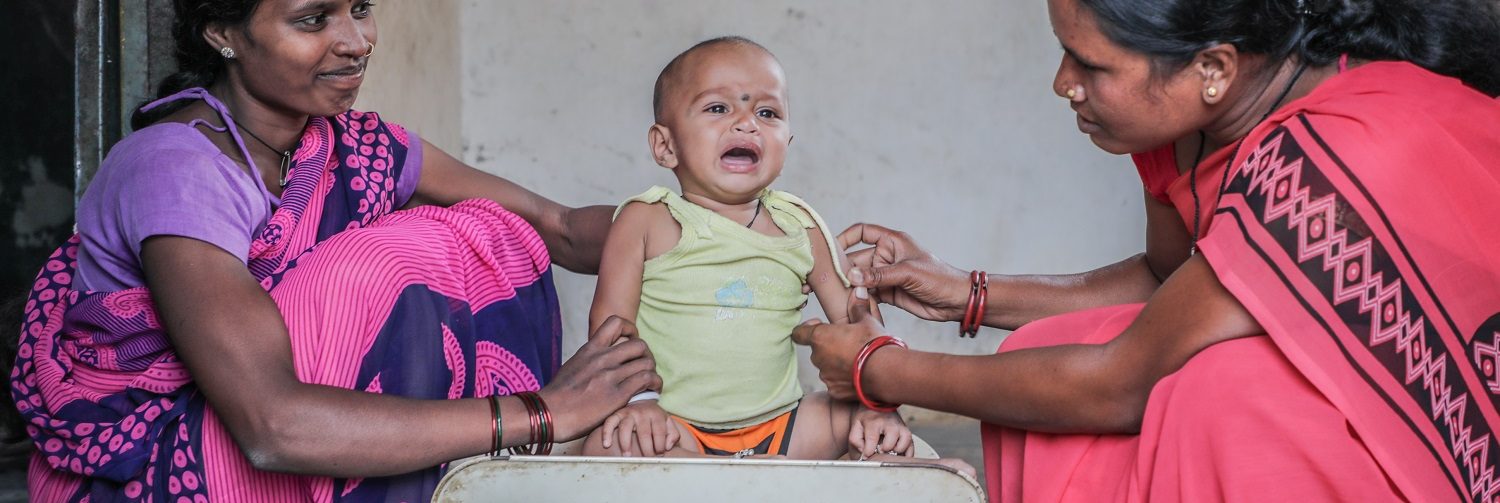 The Coalition for Sustainable Nutrition Security in India, in collaboration with the POSHAN organized the seminar Nutrition—Policies, Practices, and Governance on November 27 in New Delhi. The seminar touched on key issues in nutrition, such as stunting, governance success stories, and corporate performance on obesity and undernutrition efforts.
The Coalition for Sustainable Nutrition Security in India, in collaboration with the POSHAN organized the seminar Nutrition—Policies, Practices, and Governance on November 27 in New Delhi. The seminar touched on key issues in nutrition, such as stunting, governance success stories, and corporate performance on obesity and undernutrition efforts.
Lawrence Haddad from the Institute of Development Studies in Sussex, United Kingdom made a presentation on India’s nutrition enigmas and why they should not be a distraction from action. He highlighted that India is home to approximately 40 percent of the world’s stunted children and has the fifth-highest stunting rate in the world.
India’s rates of childhood stunting are higher than Africa’s and have a weak connection to economic growth: When considering its GDP per capita, India’s rate of stunting is higher than would be predicted, although not by a great extent. Haddad laid out several possible causes for this higher than expected rate of stunting, including ineffective nutrition interventions, poor sanitation standards, and the poor status of women, among others. Indian citizens need to put pressure on their government to prioritize nutrition. Undernutrition is invisible and irreversible, requiring action on multiple fronts, he said.
Dr. V. Suresh and Professor Pradip Prabhu of the Barefoot Academy of Governance (BA) made a presentation on governance and improved nutrition outcomes, specifically building on what works in other sectors in India. They presented their experience with intensive residential ‘change’ retreats, in which participants engaged in personal and collective explorations of their understanding of good governance practices. They found that key to all the change efforts was the ideal of `Collective, Convergent, and Consensual Change.’ A change management experiment completed in Odisha served as an inspiration and a sign of the potential that exists in the country to change the face of public services. It doesn’t take much effort nor is it very expensive, explained the presenters.
Ms. Inge Kauer, Executive Director of the Netherlands-based Access to Nutrition Foundation made a presentation on the Access to Nutrition Index (ATNI), a new global initiative that evaluates food and beverage manufacturers on their policies, practices, and performance related to obesity and undernutrition. Formally launched in March, 2013, the next ATNI is planned to be published in 2015. In addition to a global index, ATNI is also working on spotlight indexes for assessing companies in specific markets suffering from a high double burden of malnutrition. India is one of the countries that ATNI is exploring. By providing companies with a tool for benchmarking their nutrition practices and serving as an impartial source of information for interested stakeholders, ATNI aims to encourage companies to increase consumer access to nutritious products and responsibly exercise their influence on consumer choice and behavior.

